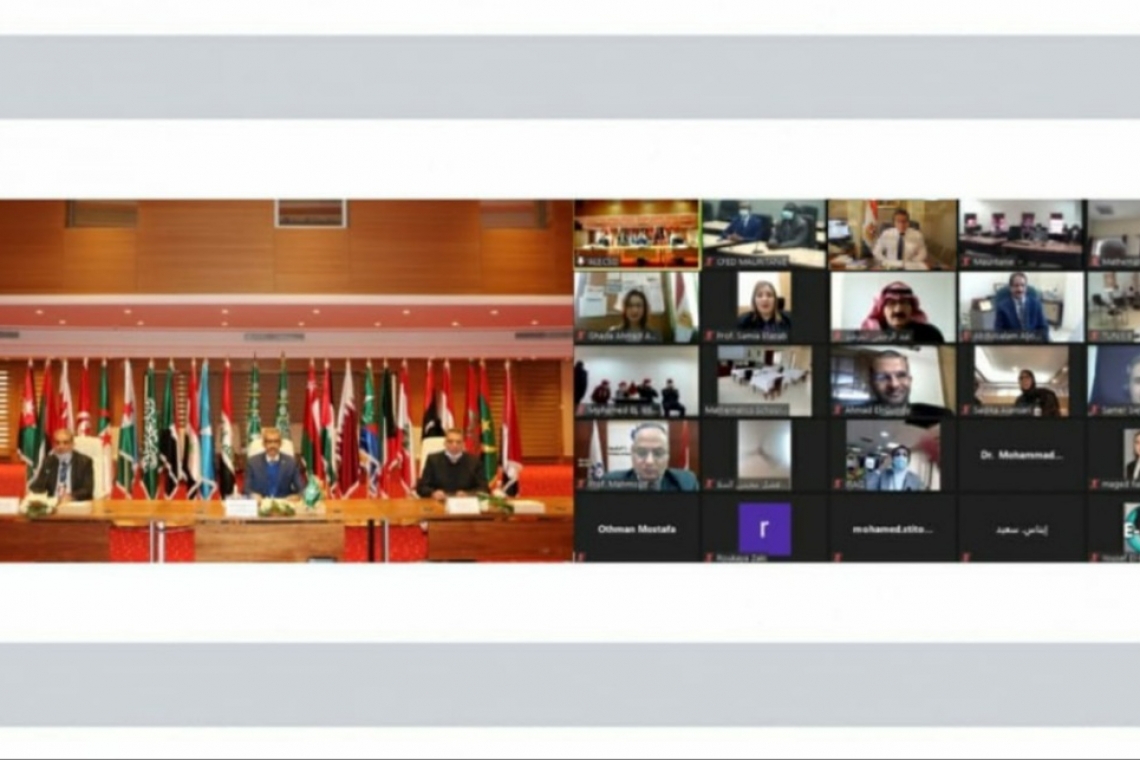In celebration of the World Arabic Language Day, and under the slogan “Let’s speak Arabic and learn all languages”, the Arab League Educational, Cultural and Scientific Organization (Education Department) organized, on December 18, 2020, a Webinar on “The Role of the Arabic Language in achieving Sustainable Development Goals”.
The webinar was attended by H.E. Mr. Samir Addahre, Ambassador, Permanent Delegate of Morocco to UNESCO, and Chairperson of the Arab Group at UNESCO, along with a number of relevant experts and researchers from Arabic countries and elsewhere.
In his opening statement, H.E. Dr. Mohamed Ould Amar, Director-General of ALECSO, stressed that ALECSO has been working, since its inception, to serve, defend and promote the Arabic language, and has been keen to grant it the status it deserves in its policies, programs and projects. He pointed, in this context, to the launch, jointly with ALECSO’s partners, of the project of developing a “Common Framework of Reference for Arabic Language, in addition to other initiatives designed to promote the teaching and learning of Arabic in Arab countries with special needs.
Dr. Ould Amar took this opportunity to reaffirm ALECSO’s commitment to continue serving the Arabic language, and to call on all Arab governments and peoples to assume the collective responsibility and undertake major initiatives and projects to further enhance the Arabic language and give it the place it deserves in public policies and legislations, as well as in education, scientific research, trade, administration, media, economy, and all other fields of life.
Participants focused in their interventions on the current state of the Arabic language and the obstacles and challenges it currently faces to play its role in all aspects of life. They also emphasized the need to boost the status of Arabic as a language of science, technology and research, and to work for empowering it, changing stereotypes about it, and modernizing its teaching and learning methods based on scientific tools and references.
ALECSO celebrates World Arabic Language Day



